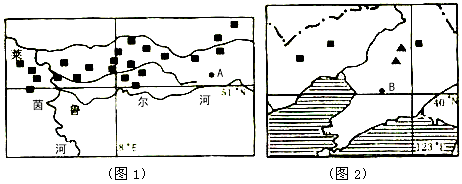图1为德国鲁尔区,图2为中国辽中南地区、读图回答下列问题。

(1)图中A、B两地都位于地球五带中的________带,两地一年中昼夜长短变化较大的是________。(填
字母)
(2)鲁尔区和辽中南地区最重要的工业部门都是________。它们均拥有丰富的_______ (能源),20世
纪60年代以来,该能源的优势地位逐渐被__________和天然气所取代。
(3)近几十年来,这两个地区的一部分重工业布局向海港城市靠近,主要是为了充分利用当地的______
____优势。
(4)借鉴鲁尔区综合整治的经验,请你为辽中南地区可持续发展献计献策。(至少两条)
_________________________________________________________________________________________
_________________________________________________________________________________________
_________________________________________________________________________________________
(1)北温;A
(2)钢铁工业;煤炭;石油
(3)交通(或海运)
(4)发展新兴工业和第三产业,改变单一的重工业结构;全面治理环境污染,提高环境质量;加强自身
技术改造,淘汰落后的生产方式,提高自身的生产水平;大力拓展融资途径,引进民间资本;政府给
予一定的政策上的优惠等。(答出两点,合理即可)
